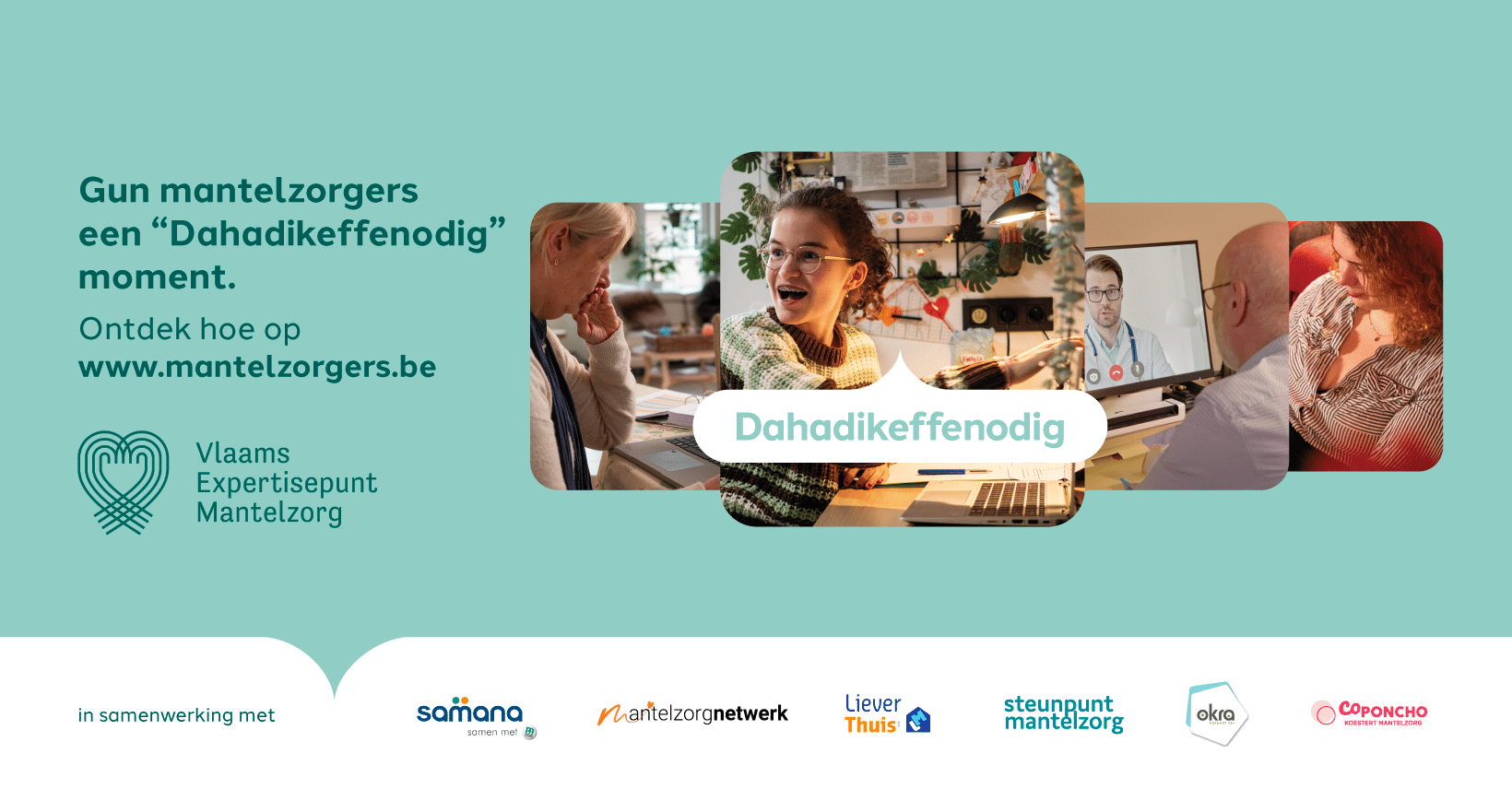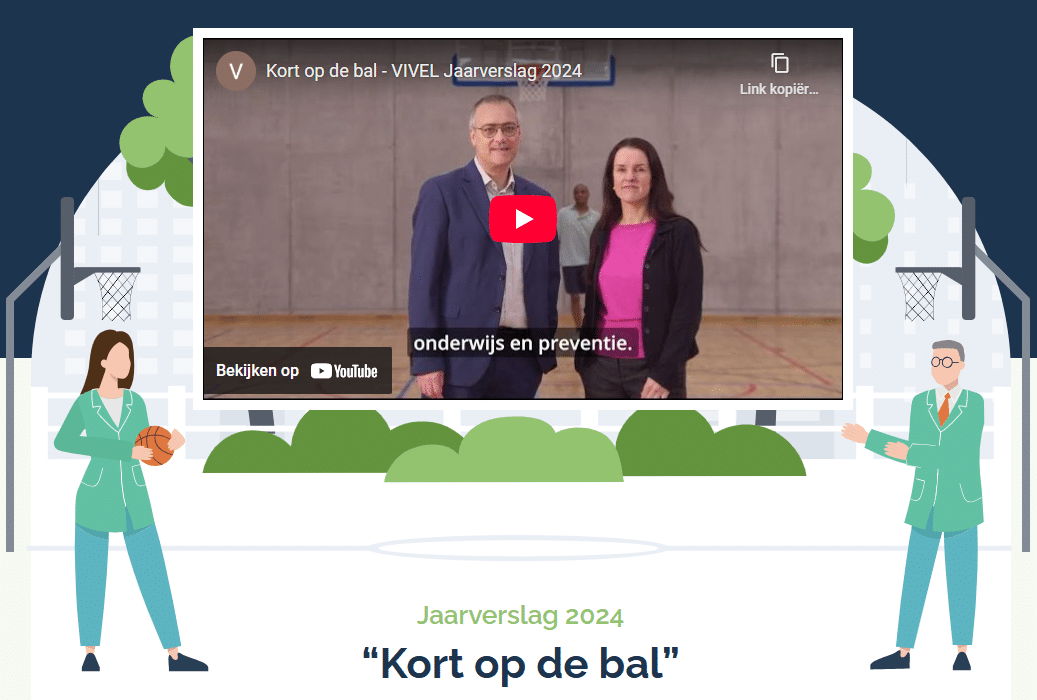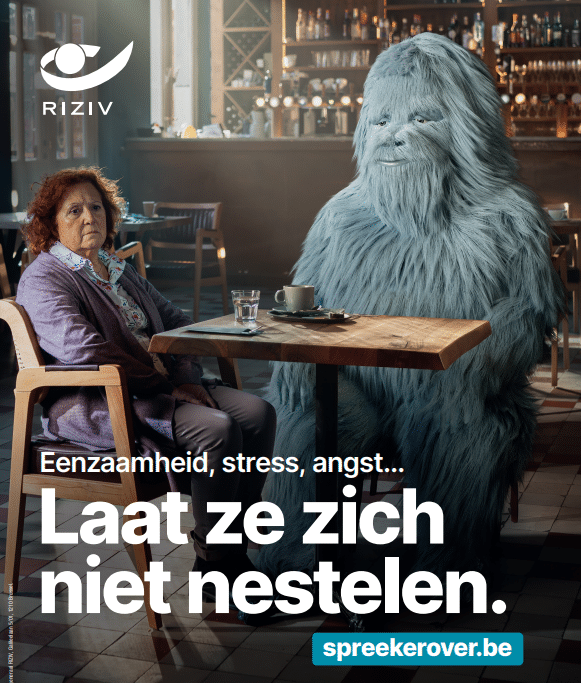From Jan. 1, 2025, partners recognized by Opgroeien and the Flemish Agency for Persons with Disabilities (VAPH) will have a permanent place within each care council. And so the moment presents itself to forge collaborations. With this series of interviews, we inspire with some ongoing and especially exciting collaborations. Today we talk to Valentine Lebacq and Bettina Kendip from BruZEL and Joachim De Paepe from Meetjesland.
Double interview: collaboration and innovation within Primary Care - part 2
From January 1, 2025, partners recognized by Agency Opgroeien and the Flemish Agency for Persons with Disabilities (VAPH) will have a permanent place within each care council. This initiative offers new opportunities for intersectoral cooperation and ensures attention for children, young people and persons with disabilities. With 2025 in sight, the moment presents itself to build collaborations. With this series of interviews, we inspire through ongoing collaborations.
In this double interview, Valentine Lebacq and Bettina Kendip of care council BruZEL (the Flemish recognized first-line zone for the 19 municipalities of Brussels) and Joachim De Paepe of the care councils East and West Meetjesland share their insights and experiences. The projects, active in their respective first-line zones, especially underline the power of collaboration and innovation, in support of vulnerable groups.
Brussels: integration and communication
Valentine Lebacq and Bettina Kendip share their experiences from Brussels, where primary care and the disability sector are converging through unique initiatives and networks. Therefore, first a word of explanation about these initiatives. Because here, links between the VAPH partners and the first-line actors have already existed for some time. For example, mobile teams lead people to the right support. Brussels residents with care needs can also be brought to the Primary Care thanks to consultation platforms where there is room for case discussions. Brussels representatives from the Flemish recognized sector for persons with disabilities and their cooperation partners also meet in the Brussels Regional Consultation Centre for Disability Care, abbreviated BROG. This consultation platform promotes the inclusion of Brussels residents with disabilities. Since its inception, BruZEL has been able to build on the existing collaboration between BROG and the non-profit organization Huis voor Gezondheid, which houses BruZEL. Thus, a staff member of BruZEL currently participates in the BROG and the president of BROG sits as vice president in the care council, from cluster Welfare. In addition, two more care council members from the Person with a Care and Support Need (PZON) and Optional Partners clusters also sit on the BROG. They have been looking after the interests of the Brussels residents and partners linked to the VAPH sector since the start of the Primary Care area.
What is the added value of this collaboration for the frontline zone?
Valentine Lebacq, Vice-President of the BruZEL Care Council, enthusiastically said, "In Brussels, we are strongly committed to integrated care in primary care and to involving the VAPH sector in this. We also want to improve access to primary care for people with disabilities in terms of health and well-being. A first step in this is to bring together existing initiatives, wishes and needs from the combined networks and provide a forum through our network. In this way, we hope to strengthen care for both Brussels residents and primary care and welfare professionals."
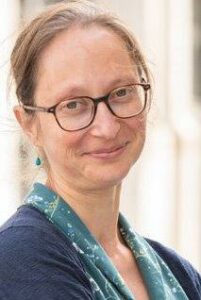
Bettina Kendip, staff member Care Council BruZEL, agrees: "The strength of our cooperation lies in the exchange of knowledge and the alignment of our offerings. Initiatives such as Zipster strengthen the connections between different care sectors, In other words, introducing the broad field of work to the offerings for persons with disabilities is an important step toward integrated cooperation."
What is the added value of this collaboration for the other partners within the project?
Valentine Lebacq: "Cooperation between the disability sector and the broad front-line field has been tinkered with for a long time. Yet we find that both front-line professionals and Brussels residents often do not find their way to the right support. Brussels residents with disabilities are not recognized or acknowledged, or do not reach the right care. This has serious consequences. Professionals working in broad primary care sometimes lack the right knowledge about the target group and referral options. Through a better connection, we hope not only to achieve integrated cooperation, but also to offer first-line professionals the right information and tools. And finally, especially to lead Brussels residents with disabilities faster to the care to which they are entitled."
Bettina Kendip: "Intensified cooperation between the VAPH sector and primary care creates opportunities, not only in terms of welfare and care, but also in terms of prevention. For example, in 2021-'22, as a primary care zone, we supported several VAPH facilities in the COVID-19 vaccination of both their clients and staff."
When do you speak of a successful collaboration?
Valentine Lebacq: "In 2024, a successful collaboration for us means increasing the visibility of existing and new bridges between primary care and the VAPH sector. And especially that the actors actually use these bridges. So increasing the visibility of initiatives and offerings is necessary. And let's face it: navigating the complexity of Brussels is a continuous challenge, but through joint efforts we make a significant difference.
Are there any particular pitfalls or challenges within the collaboration?
Bettina Kendip: "As Valentine pointed out; the complexity of the Brussels reality makes the collaboration between the BROG partners and BruZEL an sich
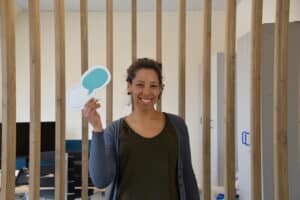
not challenging, but this ensures that we have to take more into account to achieve results. Brussels partners are responsible for a very broad group where there may be multiple problems.
Valentine Lebacq adds: "That's not to mention the complicated policies for disability in the bilingual Brussels-Capital Region, where Flemish, bi-community and French-speaking offerings coexist.
We know that not every entitled Brussels resident gets to the right care and support, and certainly not in a front-line zone where supply and policy measures run through and alongside each other. There, too, we have insufficient knowledge of each other's services and capabilities."
Bettina Kendip: "In this complex landscape, achieving concrete and better collaboration that is tangible is a challenge. We risk getting stuck in getting to know each other and consulting. The go-ahead to concrete cooperation is not easy, but it is the ambition."
How will you make this collaboration sustainable within your zone?
Bettina Kendip: "We emphasize the focus on integrated care within primary care and better engagement of the disability sector. By raising the visibility of both services and initiatives within the sector and the knowledge and expertise of the VAPH partners as a first step, we hope to make professionals within the primary care area aware of possible partnerships, training and referral opportunities. By including BROG members and the broad Brussels VAPH sector in our network, we can help create new opportunities for collaboration that can only benefit the Brussels disabled."
Meetjesland: a partnership called MOPB
Can you briefly explain the project/collaboration?
Joachim De Paepe of first-line zones East and West Meetjesland explains the project; "The Meetjeslands Consultation Platform for Persons with Disabilities, or MOPB for short, is a consultation platform where local and regional VAPH organizations come together. It focuses on cooperation around themes and bottlenecks that affect the quality of life of persons with disabilities. Staff members of the Care Council participate in the MOPB. In addition, several of our directors also sit on the MOPB. That makes for good interaction."

"Ultimately, we all quickly came to the same conclusion: there's not much point in doing all this side by side. It's going to be much stronger if we join forces and tackle this together. And with success!"
What is the added value of this collaboration for the ELZ?
Says Joachim, "The partnership with MOPB aligns closely with the goals of the care council, primarily around accessibility. MOPB's vision supports Care Council's mission to support vulnerable groups and makes Care Council alert to needs they would otherwise overlook. MOPB illustrates how collaboration within the VAPH sector leads to concrete improvements. A collaboration that has enabled us as a care council to further develop and expand accessibility projects with the guarantee that our advice is followed. That provides the motivation to continue and achieve our goals."
What is the added value of this collaboration for the other partners within the project?
Joachim: "By collaborating with the care council, the MOPB can make use of a broader intersectoral network. As zorgraad, we are a network organization, so we see it as our role to strengthen the connection between the MOPB and other partners in our network. It is also really an ambition of the MOPB to work more intersectorally, even though the consultation platform did originate from one sector."
Joachim continues, "In addition, the MOPB can use the environmental analyses we provide as ELZ, just as all the other partners in our network can call on them. This avoids duplication and enriches the actions and strategies of the MOPB. As a care council, we also look at how we can continually bring the various partners on board in order to take small steps forward each time. For example, local authorities are an important partner in the field of accessibility; they have a directing function e.g. on accessibility of sports clubs, youth movements, playgrounds..."
When do you speak of a successful collaboration?
Joachim: "A successful collaboration manifests itself in the effective realization in practice of the shared objectives. I also name overcoming sectoral boundaries and realizing concrete improvements in the accessibility of care as a successful collaboration."
Joachim: "We ran an intensive participation process with our care council last year to come up with our new policy plan. This involved 14 experts by experience, such as caregivers, people with a physical disability or mental vulnerability, people with a poverty experience... A number of people from this group joined the MOPB. We think this interaction between the care council and the MOPB is also a strong example of a successful collaboration."
Are there any particular pitfalls or challenges within the collaboration?
Joachim: "There are certainly pitfalls, but I do feel that we managed them well from the start. For example, one network is not meant to be absorbed by another: each network must be able to retain its individuality. If you do let me name a vulnerability, it is that MOPB is a partnership and not a NPO like the Care Council. So, in other words, it stands or falls on the commitment of individual members. Therefore, as a care council, we choose to co-support the MOPB and assign staff to it. But we are aware that if every network is going to make that demand, we have to look carefully at whether we can do it at the same intensity."
Contact
Questions about a particular topic? Fill out the form below and contace us.
